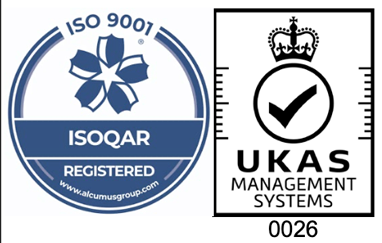Sponge Rubber: Material Characteristics
15th July, 2024
In this blog, we’ll look into the material characteristics of sponge rubber, highlighting why it is favoured in various industries.
Sponge rubber is a material with a wide range of applications, due to its unique properties.
In this blog, we’ll look into the material characteristics of sponge rubber, highlighting why it is favoured in various industries.
Structure and composition
At its core, sponge rubber is made from either natural or synthetic rubber, processed to create a cellular structure filled with air pockets. This structure is what gives sponge rubber its distinctive spongy texture. The material comes in two main types: open-cell and closed-cell.
Open-cell sponge rubber: This type has interconnected cells, allowing air and liquids to pass through. It is known for its breathability and is often used where cushioning and ventilation are important.
Closed-cell sponge rubber: In contrast, closed-cell sponge rubber has sealed cells that do not allow air or liquids to pass through. This makes it ideal for applications requiring insulation and waterproofing.
Compression set resistance
One of the standout characteristics of sponge rubber is its excellent compression set resistance. This refers to the material’s ability to withstand repeated compression without losing its original shape.
This is crucial for applications such as gaskets and seals, where maintaining a tight seal over time is essential. Even under continuous stress, sponge rubber retains its elasticity and resilience.
Thermal insulation
The cellular structure of sponge rubber significantly reduces heat transfer, giving it excellent thermal insulation properties. The trapped air within the cells acts as a barrier, making sponge rubber an effective insulator.
This characteristic is particularly valuable in applications involving thermal insulation products, gaskets, and seals that need to perform well in both high and low-temperature environments.
Acoustic insulation and vibration damping
Sponge rubber is also prized for its sound absorption capabilities. The material’s cellular structure can dampen sound waves, making it an excellent choice for acoustic insulation. This property is utilised in automotive and construction industries to reduce noise pollution.
Additionally, the same structure that absorbs sound also helps in damping vibrations, making sponge rubber ideal for applications requiring shock absorption and vibration isolation.
Chemical resistance
The chemical resistance of sponge rubber varies depending on its composition but generally includes good resistance to oils, solvents, and various chemicals. This resistance makes it suitable for use in environments where exposure to harsh substances is a concern.
For instance, in automotive or industrial applications, where contact with oils and chemicals is common, sponge rubber remains durable and effective.
Environmental resistance
Sponge rubber exhibits excellent weathering properties, resisting degradation from UV rays, ozone, and extreme temperatures. These characteristics ensure that products made from sponge rubber have a longer lifespan, even when exposed to harsh outdoor conditions.
This durability is a significant factor in its use in sealing and insulating applications in both consumer and industrial products.
Water and air tightness
Especially in its closed-cell form, sponge rubber offers superior water and air tightness. The sealed cells prevent water and air from passing through, making the material ideal for applications requiring waterproofing and airtight sealing.
This property is particularly important in marine and outdoor environments, where materials are frequently exposed to moisture and require robust sealing solutions.
Aquaseal sponge rubber
Our production facilities can convert sheets, rolls, strips, pressings, and converted parts in a multitude of grades and finishes, density and mechanical properties to suit your requirements.
Find out how we can help here.


